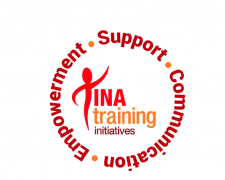This one day course will provide participants with clear information about The Care Act (2014) and its implications for people with care and support needs, carers, and those engaged professionally in the provision of care and support.
Participants will be encouraged to take common ownership of the Act’s definition of personal well-being and to recognise that support needs, care and safeguarding are best managed by the individual.
The day will be interactive throughout featuring quizzes, case studies and DVD presentations and encourage participants to explore any questions they might have about the implications of the Act for their own particular roles and responsibilities.
The Care Act (2014) has been described by the Social Care Institute for Excellence (SCIE) as:
‘The most significant piece of legislation in our sector since the establishment of the welfare state. It builds on a patchwork of legislation built up since the 1948 National Assistance Act.
……..The Act aims to put people at the centre of their care and support and maximise their involvement…..
Needs assessments must be carried out where they are necessary. The assessment should be ‘person-centred’ and ensure a focus on the duty to promote well-being….
Carers (who provide unpaid care and support) are given significant entitlements under the Act…..
Adult safeguarding is, for the first time, spelt out in the law in the Care Act….
Most of the provisions of the Act will have to be implemented by April 2015’.
Aims
To introduce and establish:
- The key principles of the Care Act (2014)
- Legal entitlements of people with care needs and carers with regard to assessment and support provision
- The duty to empower individuals to promote their own well-being
- The duty to provide person-centred care and support and ensure the safety of adults at risk of harm or neglect
Learning Outcomes
- To understand how the Act defines ‘well-being’
- To understand how needs will be assessed
- To understand the ‘eligibility decision’ process
- To be clear about the relationship between personalisation and safeguarding
- To identify adults ‘at risk’
- To understand how the Care Act Guidance defines ‘adult abuse’
- To review safeguarding adults policy and procedures including the role of the Safeguarding Adult’s Board (SAB)
- To understand the clear connection between the Care Act and ‘Making Safeguarding Personal’
- To understand the requirement to engage with different agencies where necessary to support individuals to communicate effectively (eg through the provision of interpreters/advocates) and engage with all decision making processes
Programme
- Domestics, Aims and Objectives, Ground rules, Introductions
- Background
- A Person-Centred Approach
- Documents Repealed/Replaced
- Key Changes in Legislative Duties
- ‘Wellbeing’
- Dignity – DVD
- Key Principles and Standards
- Information and Advice
- Case Study 1
- Market Shaping and Commissioning
- Assessment
- Eligible Needs
- Case Study 2
- Advocacy
- Charging and Financial Assessment
- Care and Support Planning
- Review Questions – Exercise
- Safeguarding
- Service Audit - Exercise
- Commissioning
- Integration, Cooperation and Partnership
- Case Study 3
- SCIE – Care Act Presentation
- Recap Quiz
- Questions
- Close
Who is it for?
- Care and Support Service Managers
- Support workers in residential and community settings
- Domiciliary care services
- Family members/carers
- People receiving a care service
- People who may be entitled to a care and support service
A person-centred approach
‘Adult safeguarding shares the underlying principles of personalisation – empowerment, autonomy and independence – which implies the need for it to be fully incorporated into adult social care transformation so that services focus on the person rather than the process’. (SCIE 2010)
For further information please contact:
Tina Thordal – 07815 064710 or e-mail tina@tinatraining.co.uk
Bill Horrocks – 07929 035297 or e-mail bill@tinatraining.co.uk
